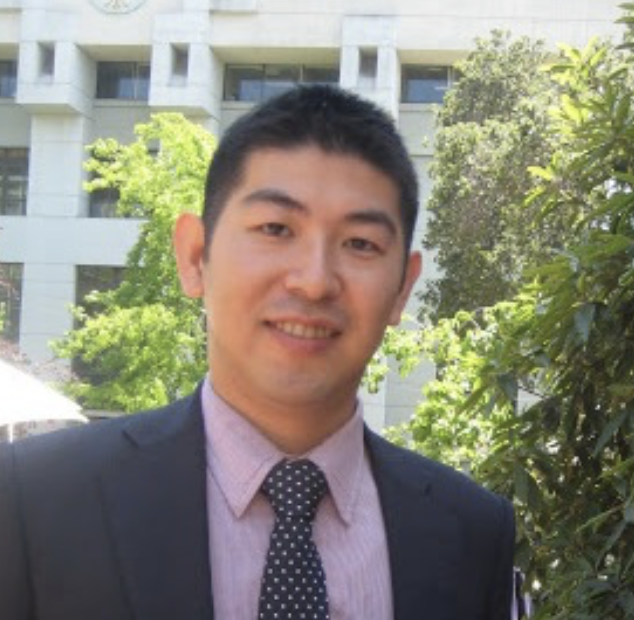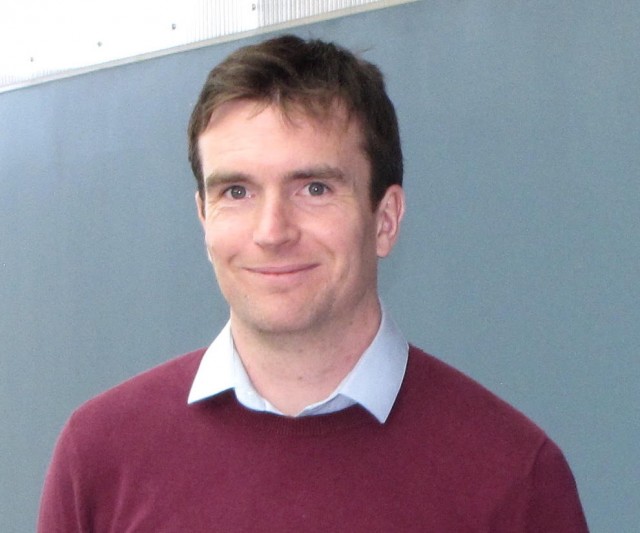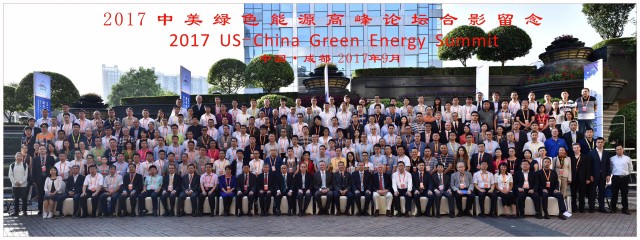Modeling the impact of EVs in the Chinese power system: Pathways for implementing emissions reduction commitments in the power and transportation sectors
RAEL and GSPP PhD student Kenji Shiraishi - who was involved in the Fukushima-Daiichi cleanup while employed in the Japanese Ministry the Environment -- will present his work on a new geospatial multi-criteria decision analysis method with spatial regression to identify Japan’s high-quality onshore wind energy potential. After identifying the economic potential of grid-connected onshore wind with a GIS-based multicriteria method, logistic regression and Bayesian Conditional Autoregressive (CAR) regression was used to create a predictive model of overall quality of 4,458 project areas. Other than economic costs, the model showed other physical, environmental, social factors, and spatial heterogeneity are incorporated to rank the overall quality of potential. The results also showed far more high-quality onshore wind potential exists in Japan than the 18 TWh targets in 2030 and necessary policy measurements to utilize the vast potential. This presentation is an excellent introduction to geospatial and economic energy planning and modeling efforts. Kenji is also developing SWITCH-Japan, and may have openings in the design team for students with strong programming and spatial skills. Kenji has also worked on issues of nuclear energy in Japan and Asia, and on energy options for Bangladesh, among other projects.
(Pizza and salad will be provided)
This presentation is an excellent introduction to geospatial and economic energy planning and modeling efforts. Kenji is also developing SWITCH-Japan, and may have openings in the design team for students with strong programming and spatial skills. Kenji has also worked on issues of nuclear energy in Japan and Asia, and on energy options for Bangladesh, among other projects.
(Pizza and salad will be provided)
Meet the Laos Energy Modeling and Policy Analysis (Undergraduate!) Team:
The focus of this inter-disciplinary and inter-university research group is to develop sustainable energy, water, and land-use scenarios for Laos, and to work with local stake-holders on the costs and benefits for communities, the nation, and the regional commerce in energy, water, food, timber and other commodities.
Aaditee Kudrimoti
 Bio: Aaditee is a fourth-year at UC Berkeley studying political science and public policy with a concentration in energy, development, and international relations. Aaditeeis originally from Tucson, Arizona, where she began to develop an interest in international environmental affairs. At UC Berkeley, Aaditeeis working on projects in the political economy of Chinese development finance, rural electrification, and collective action. Aaditeehas become especially interested in how the rise of renewable technology is influencing energy diplomacy around the world. She hopes to pursue a career in academia and public policy and work on governance tools to build the bargaining capacity of LDCs against MNCs, foreign state-owned enterprises, etc. on the subject of FDI and other types of investment. She sees SWITCH-Laos as having the potential to serve as a critical tool in assisting the increase of the Lao people’s bargaining power over FDI in the energy sector and thus their autonomy in determining their own economic development. Outside school, Aaditee’s interests include dance, food journalism, and cooking.
Alex Lathem
Bio: Aaditee is a fourth-year at UC Berkeley studying political science and public policy with a concentration in energy, development, and international relations. Aaditeeis originally from Tucson, Arizona, where she began to develop an interest in international environmental affairs. At UC Berkeley, Aaditeeis working on projects in the political economy of Chinese development finance, rural electrification, and collective action. Aaditeehas become especially interested in how the rise of renewable technology is influencing energy diplomacy around the world. She hopes to pursue a career in academia and public policy and work on governance tools to build the bargaining capacity of LDCs against MNCs, foreign state-owned enterprises, etc. on the subject of FDI and other types of investment. She sees SWITCH-Laos as having the potential to serve as a critical tool in assisting the increase of the Lao people’s bargaining power over FDI in the energy sector and thus their autonomy in determining their own economic development. Outside school, Aaditee’s interests include dance, food journalism, and cooking.
Alex Lathem
 Bio: Alex Lathem is a third-year undergraduate at Yale University. He is a physics major with several years of experience using programming languages, including Python SQL, C, and Bash, to analyze scientific data. Previous research projects Alex has worked on include astrometry of near-Earth asteroids and the creation of a Hubble curve through the analysis of Type Ia supernovae. Alex spent the summer of 2019 working on the SWITCH model for China, and is very excited to apply the skills he learned there to a version for Laos. Outside of research, Alex is also interested in music, video game design, linguistics, and history.
Ashley Yip
Bio: Alex Lathem is a third-year undergraduate at Yale University. He is a physics major with several years of experience using programming languages, including Python SQL, C, and Bash, to analyze scientific data. Previous research projects Alex has worked on include astrometry of near-Earth asteroids and the creation of a Hubble curve through the analysis of Type Ia supernovae. Alex spent the summer of 2019 working on the SWITCH model for China, and is very excited to apply the skills he learned there to a version for Laos. Outside of research, Alex is also interested in music, video game design, linguistics, and history.
Ashley Yip
 Bio: Ashley is a second-year undergraduate studying environmental science with an emphasis in global politics. She moved to New Mexico, where she developed an interest in environmental affairs. At UC Berkeley, she is involved in a pre-law association that helped her explore her interest in law and how she may integrate that into environmentalism. Off campus, she is working on a sex education reform project in Singapore with the Ministry of Education. She is constantly exploring the intersection between policy, education, and the environment. She hopes to return home to Singapore and pursue a career in international environmental policy or law within Southeast Asia. Ashley chose to work on SWITCH-Laos not only because greening ASEAN's economic development is essential to tackling climate change, but also because she is familiar with the demographic. She has done research in regards to both urban and rural agriculture in Asia and the US, and led research for environmental management in business operations. Outside of school, her interests include climbing, hiking, piano, and camper vans.
Rachel Ng
Bio: Ashley is a second-year undergraduate studying environmental science with an emphasis in global politics. She moved to New Mexico, where she developed an interest in environmental affairs. At UC Berkeley, she is involved in a pre-law association that helped her explore her interest in law and how she may integrate that into environmentalism. Off campus, she is working on a sex education reform project in Singapore with the Ministry of Education. She is constantly exploring the intersection between policy, education, and the environment. She hopes to return home to Singapore and pursue a career in international environmental policy or law within Southeast Asia. Ashley chose to work on SWITCH-Laos not only because greening ASEAN's economic development is essential to tackling climate change, but also because she is familiar with the demographic. She has done research in regards to both urban and rural agriculture in Asia and the US, and led research for environmental management in business operations. Outside of school, her interests include climbing, hiking, piano, and camper vans.
Rachel Ng
 Bio: Rachel is a second-year Environmental Science and Data Science major. A Singapore-native, Rachel describes that SWITCH-Laos extremely important to her because it is an important step towards the energy security of Southeast Asia. She believes that the sustainable electrification of Southeast Asia is key to regional grid stability and energy trade. She is pursuing SWITCH-Laos as critical in leading the way towards sustainable electrification. Rachel is interested in the intersectionality between climate change and community, exploring how community based issues caused by climate change can be alleviated through data. Furthermore, Rachel is currently concerned about equal access to education and volunteers weekly as a mentor to elementary school students. In the future, she hopes to return to Singapore and guide environmental change through creating an ecosystem of sustainable communities and businesses. Her hobbies include dance, rock climbing and water sports.
Bio: Rachel is a second-year Environmental Science and Data Science major. A Singapore-native, Rachel describes that SWITCH-Laos extremely important to her because it is an important step towards the energy security of Southeast Asia. She believes that the sustainable electrification of Southeast Asia is key to regional grid stability and energy trade. She is pursuing SWITCH-Laos as critical in leading the way towards sustainable electrification. Rachel is interested in the intersectionality between climate change and community, exploring how community based issues caused by climate change can be alleviated through data. Furthermore, Rachel is currently concerned about equal access to education and volunteers weekly as a mentor to elementary school students. In the future, she hopes to return to Singapore and guide environmental change through creating an ecosystem of sustainable communities and businesses. Her hobbies include dance, rock climbing and water sports.
James Merrick’s research focuses on the improvement of mathematical modeling methods to address a variety of energy and climate planning problems. This talk will discuss this research, with an emphasis on how to structure models to provide economic and policy insight, focusing on appropriate valuation of renewables and energy storage options.
James completed his PhD in Management Science and Engineering at Stanford University in January 2018. He previously completed a dual masters degree in Technology & Policy and Electrical Engineering & Computer Science at MIT, and a Bachelor of Engineering degree at University College Dublin. Since completing his PhD, James applies his research to, and builds optimization models for, EPRI, a stealth robotics startup in San Francisco, and a major electricity generator in Ireland. In addition, James is undertaking a number of research projects with colleagues at NASA, EPRI, and Stanford and when possible, likes to help develop his family’s farm in Ireland.

Two-Stage Monte Carlo Simulation to Forecast Levelized Cost of Electricity for Wave Energy
Rachael Green is currently an undergraduate senior at the University of California, Berkeley. She is majoring in Environmental Economics and Policy in the College of Natural Resources with a minor in History from the College of Letters and Science. She has worked as an undergraduate researcher in the collaborative effort between the Renewable and Appropriate Energy Laboratory and CalWave Power Technologies, Inc. Despite wave energy’s vast global potential, there has been relatively little commercial deployment to date. This has been partially attributed to the large uncertainty in both the current estimated and future expected electricity generation costs associated with wave technologies. Her presentation quantifies the uncertainty of the forecasted levelized cost of electricity (LCOE) for wave energy as it relates to United States and European Union energy targets. Next month she will present this work at the International Conference on Renewable Energy Research and Applications. After graduating, Rachael hopes to continue working in the renewable energy field.
 Rong HAN (Ph.D Candidate in Beijing Institute of Technology, Visiting Scholar in Berkeley Energy and Climate Institute).
Research progress of IAMs Downscaling model, Evaluation model and Land use model
Rong HAN is currently a third year PhD Candidate in Center for Energy & Environmental Policy Research, Beijing Institute of Technology. She came to Berkeley's Energy and Climate Institute as visiting scholar for one year. During the process of PhD student, her research mainly focus on assessment of global climate policy, China’s carbon emission trading market and carbon finance. These researches have published on Journal of Cleaner Production, Natural Hazards, and Energy Policy.
Climate change is a complex and comprehensive process, which can only be understood on the basis of the combined insights from various scientific disciplines. In recent years the need for integration of information among ‘earth system’ (ES), ‘vulnerability, impact, and adaptation assessment’ (VIA), and ‘integrated assessment’ (IA) communities has become stronger. The IAM (integrated assessment models) model is designed to couple of ES and IA models to account of the possible feedbacks between human systems and the earth system on the global scale. Her presentation will be focus on the recent research progress of IMA downscaling model, evaluation model and land use model.
Rong HAN (Ph.D Candidate in Beijing Institute of Technology, Visiting Scholar in Berkeley Energy and Climate Institute).
Research progress of IAMs Downscaling model, Evaluation model and Land use model
Rong HAN is currently a third year PhD Candidate in Center for Energy & Environmental Policy Research, Beijing Institute of Technology. She came to Berkeley's Energy and Climate Institute as visiting scholar for one year. During the process of PhD student, her research mainly focus on assessment of global climate policy, China’s carbon emission trading market and carbon finance. These researches have published on Journal of Cleaner Production, Natural Hazards, and Energy Policy.
Climate change is a complex and comprehensive process, which can only be understood on the basis of the combined insights from various scientific disciplines. In recent years the need for integration of information among ‘earth system’ (ES), ‘vulnerability, impact, and adaptation assessment’ (VIA), and ‘integrated assessment’ (IA) communities has become stronger. The IAM (integrated assessment models) model is designed to couple of ES and IA models to account of the possible feedbacks between human systems and the earth system on the global scale. Her presentation will be focus on the recent research progress of IMA downscaling model, evaluation model and land use model.

 Amid growing California-China clean energy partnerships RAEL is partnering with both research and deployment partners in China to accelerate the decarbonization agenda. In efforts with Tsinghua University, Chongqing University, and North China Electric Power University, among other academic partners, as well as with local and federal partners in China, RAEL is working to accelerate the deployment of electric transportation, address air and water pollution, and to explore alternatives to the development-environmental degradation nexus. RAEL doctoral student Anne-Perrine Avrin, who spoke on here work at a recent RAEL Lunch Seminar, is currently working with colleagues in China on electric vehicle adoption strategies (of the 2 million electric vehicles in use world-wide, 1 million are in China and over 200,000 are in California).
Amid growing California-China clean energy partnerships RAEL is partnering with both research and deployment partners in China to accelerate the decarbonization agenda. In efforts with Tsinghua University, Chongqing University, and North China Electric Power University, among other academic partners, as well as with local and federal partners in China, RAEL is working to accelerate the deployment of electric transportation, address air and water pollution, and to explore alternatives to the development-environmental degradation nexus. RAEL doctoral student Anne-Perrine Avrin, who spoke on here work at a recent RAEL Lunch Seminar, is currently working with colleagues in China on electric vehicle adoption strategies (of the 2 million electric vehicles in use world-wide, 1 million are in China and over 200,000 are in California).

 Click here for a direct link to the paper, published in Environmental Science & Technology (ES&T).
Fast growing and emerging economies face the dual challenge of sustainably expanding and improving their energy supply and reliability while at the same time reducing poverty. Critical to such transformation is to provide affordable and sustainable access to electricity. We use the capacity expansion model SWITCH to explore low carbon development pathways for the Kenyan power sector under a set of plausible scenarios for fast growing economies that include uncertainty in load projections, capital costs, operational performance, and technology and environmental policies. In addition to an aggressive and needed expansion of overall supply, the Kenyan power system presents a unique transition from one basal renewable resource− hydropower− to another based on geothermal and wind power for ∼ 90% of total capacity. We find geothermal resource adoption is more sensitive to operational degradation than high capital costs, which suggests an emphasis on ongoing maintenance subsidies rather than upfront capital cost subsidies. We also find that a cost-effective and viable suite of solutions includes availability of storage, diesel engines, and transmission expansion to provide flexibility to enable up to 50% of wind power penetration. In an already low-carbon system, typical externality pricing for CO2 has little to no effect on technology choice. Consequently, a “ zero carbon emissions” by 2030 scenario is possible with only moderate levelized cost increases of between $3 and $7/MWh with a number of social and reliability benefits. Our results suggest that fast growing and emerging economies could benefit by incentivizing anticipated strategic transmission expansion. Existing and new diesel and natural gas capacity can play an important role to provide flexibility and meet peak demand in specific hours without a significant increase in carbon emissions, although more research is required for other pollutant’ s impacts.
Click here for a direct link to the paper, published in Environmental Science & Technology (ES&T).
Fast growing and emerging economies face the dual challenge of sustainably expanding and improving their energy supply and reliability while at the same time reducing poverty. Critical to such transformation is to provide affordable and sustainable access to electricity. We use the capacity expansion model SWITCH to explore low carbon development pathways for the Kenyan power sector under a set of plausible scenarios for fast growing economies that include uncertainty in load projections, capital costs, operational performance, and technology and environmental policies. In addition to an aggressive and needed expansion of overall supply, the Kenyan power system presents a unique transition from one basal renewable resource− hydropower− to another based on geothermal and wind power for ∼ 90% of total capacity. We find geothermal resource adoption is more sensitive to operational degradation than high capital costs, which suggests an emphasis on ongoing maintenance subsidies rather than upfront capital cost subsidies. We also find that a cost-effective and viable suite of solutions includes availability of storage, diesel engines, and transmission expansion to provide flexibility to enable up to 50% of wind power penetration. In an already low-carbon system, typical externality pricing for CO2 has little to no effect on technology choice. Consequently, a “ zero carbon emissions” by 2030 scenario is possible with only moderate levelized cost increases of between $3 and $7/MWh with a number of social and reliability benefits. Our results suggest that fast growing and emerging economies could benefit by incentivizing anticipated strategic transmission expansion. Existing and new diesel and natural gas capacity can play an important role to provide flexibility and meet peak demand in specific hours without a significant increase in carbon emissions, although more research is required for other pollutant’ s impacts.
Our paper now available from the Proceedings of the National Academy of Sciences:
Previous analyses have found that the most feasible route to a low-carbon energy future is one that adopts a diverse portfolio of technologies. In contrast, Jacobson et al. (2015) consider whether the future primary energy sources for the United States could be narrowed to almost exclusively wind, solar, and hydroelectric power and suggest that this can be done at “low-cost” in a way that supplies all power with a probability of loss of load “that exceeds electric-utility-industry standards for reliability”. We find that their analysis involves errors, inappropriate methods, and implausible assumptions. Their study does not provide credible evidence for rejecting the conclusions of previous analyses that point to the benefits of considering a broad portfolio of energy system options. A policy prescription that overpromises on the benefits of relying on a narrower portfolio of technologies options could be counterproductive, seriously impeding the move to a cost effective decarbonized energy system.
Or, download it from the RAEL Publications page: here.
Press coverage of this paper:
June 20, 2017 - Power Magazine: "Experts debunk 100% Renewable Energy Decarbonization Study by WWS Team"
June 20, 2017 - The Chicago Tribune: "A bitter scientific debate just erupted over the future of America's power grid"
June 20, 2017 - The New York Times: "Fisticuffs Over the Route to a Clean Energy Future"
June 19, 2017 - The Washington Post: "A bitter scientific debate just erupted over the future of America's power grid"
June 19, 2017 - MIT Technology Review: "Scientists sharply rebut influential renewable energy plan"
June 19, 2017 - Science Daily: "Fighting global warming and climate change requires a broad energy portfolio"
June 19, 2017 - Greentech Media: "100% renewable energy plan as 'significant shortcomings' say climate and energy experts".
Summary:
